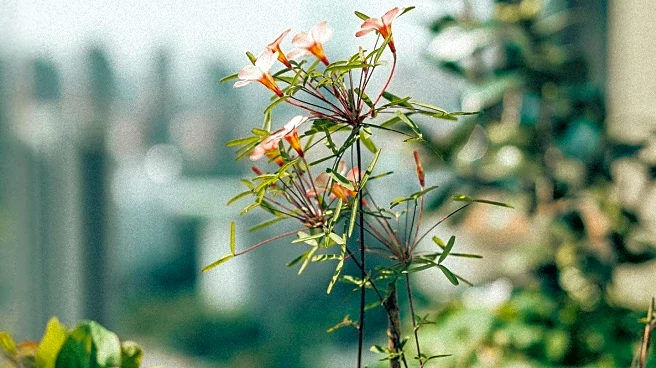What's Happening?
Club Gay Gardens, a gardening club in Los Angeles, is dedicated to preserving native flora and providing a community space for queer individuals. Located on Glendale's Brand Boulevard, the club gathers monthly to maintain a parkway garden, learn about
native gardening, and foster connections among plant enthusiasts. Co-founded by Maggie Smart-McCabe and Linnea Torres, the club aims to reimagine urban spaces and promote food accessibility. The club's activities include seed sorting, planting, and educational events, with a focus on social justice and community engagement. The club has received a grant to expand its efforts and provide professional development opportunities for local gardeners.
Why It's Important?
The efforts of Club Gay Gardens highlight the importance of preserving native plants and creating inclusive community spaces. By promoting urban green spaces, the club addresses issues of food accessibility and environmental sustainability. The club's focus on social justice and community engagement provides a model for other urban areas seeking to integrate ecological preservation with social inclusivity. The grant received by the club will enable further expansion and professional development, potentially influencing urban planning and community gardening initiatives across Los Angeles.
What's Next?
Club Gay Gardens plans to establish satellite locations throughout Los Angeles and expand professional development opportunities for local gardeners. The grant will support training in working with contaminated soils, addressing environmental challenges in the aftermath of recent wildfires. The club's ongoing efforts aim to foster a broader appreciation for native plants and encourage community involvement in urban gardening.
Beyond the Headlines
The club's activities reflect a broader cultural shift towards valuing ecological preservation and community engagement. By politicizing gardening and integrating it into a social justice framework, Club Gay Gardens challenges traditional archetypes of home gardening and promotes inclusivity. The club's success may inspire similar initiatives in other urban areas, contributing to a more sustainable and inclusive approach to urban planning.

















